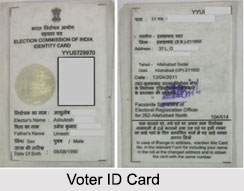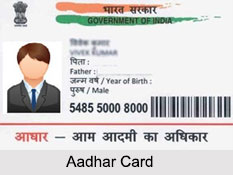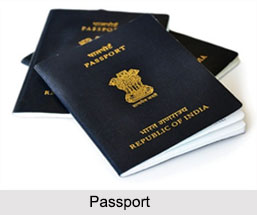 Indian citizenship is governed by the Constitution of India. The Indian Constitution came into force on 26th of January, 1950. It provides single citizenship for the entire country. Citizenship Act, 1955 and its amendments (like the Citizenship (Amendment) Act 1986, the Citizenship (Amendment) Act 1992 and the Citizenship (Amendment) Act 2003) have helped to determine the criteria for attaining Indian citizenship. Matters concerning Indian citizenship are contained in Articles 5 to 11 in Part II of the Constitution of India.
Indian citizenship is governed by the Constitution of India. The Indian Constitution came into force on 26th of January, 1950. It provides single citizenship for the entire country. Citizenship Act, 1955 and its amendments (like the Citizenship (Amendment) Act 1986, the Citizenship (Amendment) Act 1992 and the Citizenship (Amendment) Act 2003) have helped to determine the criteria for attaining Indian citizenship. Matters concerning Indian citizenship are contained in Articles 5 to 11 in Part II of the Constitution of India.
Indian Citizenship by Birth
The law states that any person born in India on or after 26th of January 1950, but before the commencement of the 1986 Act was a citizen of India. A person born in India after 1st of July 1987 was a citizen of India, if one of the two parents was a citizen of India at the time of birth. The law further states that those born in India on or after 3rd of December, 2004 are considered to be citizens of India, only if both of their parents are citizens of India or if one parent is a citizen of India and the other is not an illegal migrant at the time of birth.
Citizenship by Descent
Under the category of citizenship by descent, any person born outside India on or after 26th of January, 1950, but before 10th of December, 1992 is a citizen of India by descent, only if his father was a citizen of India at the time of his birth. Those born after 10th of December, 1992 are considered to be citizens of India, if either of their parents are citizens of India at the time of their birth. However, according to the Citizenship (Amendment) Act 2003, any person born outside India after 3rd of December, 2004 shall not be considered a citizen of India, unless his birth is registered at an Indian consulate within one year from the date of birth.
Citizenship by Registration
A person can be registered as a citizen of India under section 5 of the Citizenship Act, 1955 by submitting an application. But the person needs to belong to any of the following categories.
•A person of Indian origin who is ordinarily a resident of India since 7 years, before making an application for registration.
•A person of Indian origin who is ordinarily a resident of any country or place outside undivided India.
•A person who is married to a citizen of India and is ordinarily a resident of India since 7 years, before making an application for registration.
•Minor children of persons who are citizens of India.
•A person of full age and capacity, whose parents are registered as citizens of India by ordinary residence in India since 7 years.
•A person of full age and capacity, who or either of his parents was earlier a citizen of independent India, and has been residing in India since a year, immediately before making an application for registration.
•A person of full age and capacity, who has been registered as an overseas citizen of India since 5 years, and who has been residing in India since a year, before making an application for registration.
Citizenship by Naturalisation
 Citizenship by naturalisation can be acquired by a foreigner, who has resided in India for 12 years. The applicant must have lived in India for 11 years in a period of 14 years. Added to this is the point that the last 12 months preceding the application must be spent in India.
Citizenship by naturalisation can be acquired by a foreigner, who has resided in India for 12 years. The applicant must have lived in India for 11 years in a period of 14 years. Added to this is the point that the last 12 months preceding the application must be spent in India.
Renunciation and Termination of Indian Citizenship
Giving up of Indian citizenship or its renunciation is covered in Section 8 of the Citizenship Act of 1955. If an adult declares that he or she wants to renounce Indian citizenship, then the person can drop it. A minor child of that person will lose Indian citizenship from that date of renunciation. However, the child has the right to resume Indian citizenship, when he reaches the age of 18. Termination of Indian citizenship is covered under Section 9 of the Citizenship Act, 1955. According to Section 9 (1) of the Act, any citizen of India, who acquires the citizenship of another country by naturalisation or registration, shall cease to be a citizen of India.
Overseas Citizenship of India
In India, there exists a new form of nationality, the holders of which are known as overseas citizens of India. The Constitution of India does not permit dual citizenship or dual nationality, except in certain cases. People of Indian origin who migrated from India and attained the citizenship of some other country (except Pakistan and Bangladesh) are eligible for overseas citizenship of India. Children of foreign diplomats, who were born in India, can acquire dual citizenship for the time their parents` are engaged in service in India. Minors who involuntarily acquired second nationality are also eligible for overseas citizenship of India. An overseas citizen of India will enjoy all the rights and privileges enjoyed by Non Resident Indians (NRI), excluding the right to invest in agriculture and plantation properties.




















